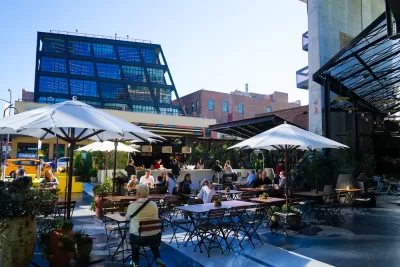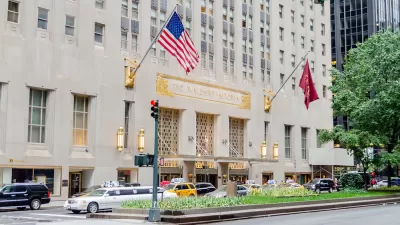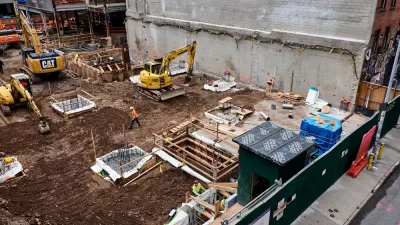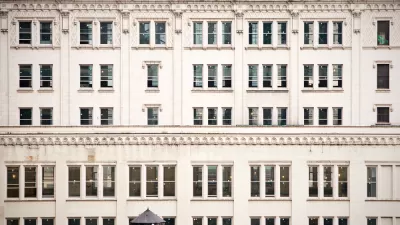A local labor organization wanted larger hotels to help workers create unions, so they sought a zoning change to make it harder to develop smaller hotels in light manufacturing zones.

"The M1 Hotel Text Amendment adopted by City Council last December, which requires a special permit for the construction of hotels in most light manufacturing zones, was widely expected to have a chilling effect on hotel development in New York City," reports Kevin Sun.
"An analysis by the The Real Deal of Department of Buildings filings for new hotels has found that while developers are continuing to plan larger hotel projects at a rate comparable to historical levels, new plans for smaller hotels have suddenly become rare."
Less than rare, in fact—in the beginning of 2019, new hotel developments with fewer than 70 rooms were completely non-existent. On June 13, a developer broke the streak by submitting plans for "a 61-key, six-story hotel at 3294 Atlantic Avenue in East New York, Brooklyn," according to Sun.
Before the zoning change went into effect, a spate of development proposals were submitted—the fruits of which are still under construction around the city. Meanwhile development of larger hotels has continued at a steady clip, before and after the change.
According to Sun, the effect is exactly what the union behind the M1 Hotel Text Amendment, the New York Hotel and Motel Trades Council, expected.
FULL STORY: Go big or go home? Why small hotel development in NYC may be a thing of the past

Maui's Vacation Rental Debate Turns Ugly
Verbal attacks, misinformation campaigns and fistfights plague a high-stakes debate to convert thousands of vacation rentals into long-term housing.

Planetizen Federal Action Tracker
A weekly monitor of how Trump’s orders and actions are impacting planners and planning in America.

In Urban Planning, AI Prompting Could be the New Design Thinking
Creativity has long been key to great urban design. What if we see AI as our new creative partner?

King County Supportive Housing Program Offers Hope for Unhoused Residents
The county is taking a ‘Housing First’ approach that prioritizes getting people into housing, then offering wraparound supportive services.

Researchers Use AI to Get Clearer Picture of US Housing
Analysts are using artificial intelligence to supercharge their research by allowing them to comb through data faster. Though these AI tools can be error prone, they save time and housing researchers are optimistic about the future.

Making Shared Micromobility More Inclusive
Cities and shared mobility system operators can do more to include people with disabilities in planning and operations, per a new report.
Urban Design for Planners 1: Software Tools
This six-course series explores essential urban design concepts using open source software and equips planners with the tools they need to participate fully in the urban design process.
Planning for Universal Design
Learn the tools for implementing Universal Design in planning regulations.
planning NEXT
Appalachian Highlands Housing Partners
Mpact (founded as Rail~Volution)
City of Camden Redevelopment Agency
City of Astoria
City of Portland
City of Laramie





























